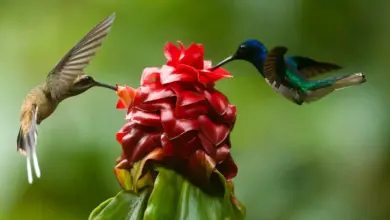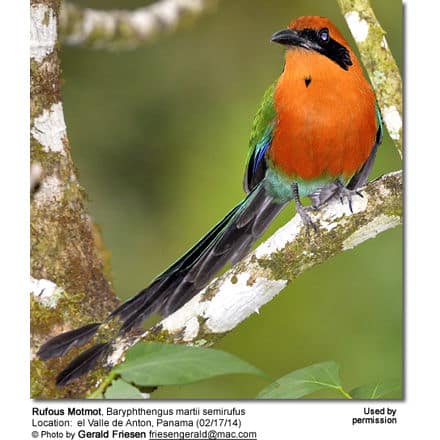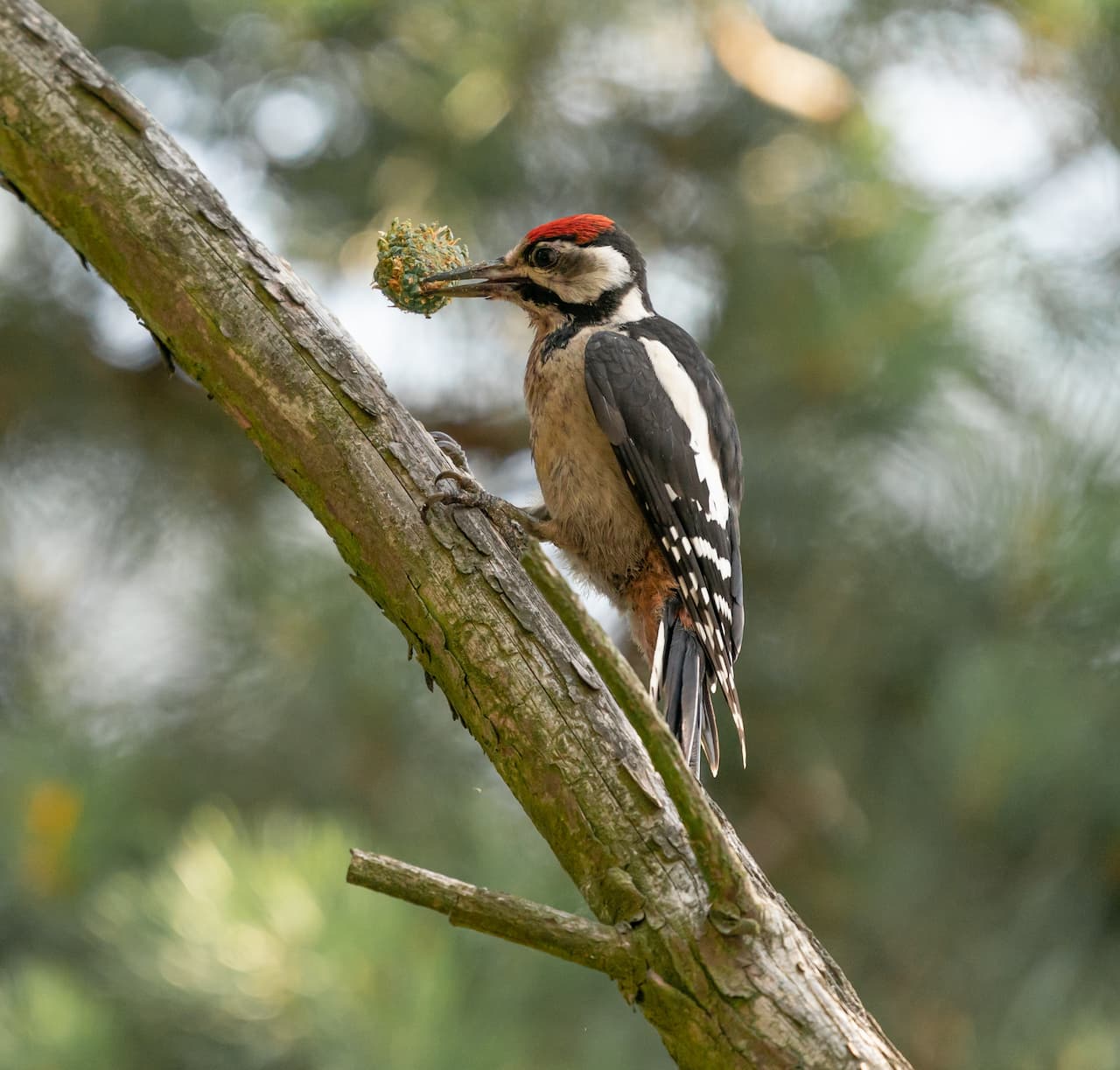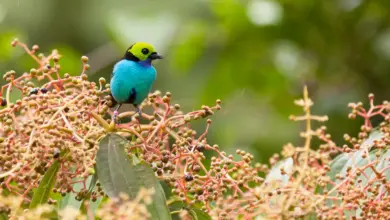Muscovy Duck Lifespan: How Long Do Muscovies Live?
If you are looking to take in a muscovy duck as a pet, you might be interested to understand its lifespan – and what kind of commitment you are looking at. I share some details about this below.
With their large size and vibrant red face markings, Muscovy ducks look as if they are a science experiment gone wrong – and this wouldn’t be too far from the truth!
This waterfowl species is native to Central and South America.
However, due to human intervention and domestication, Muscovies can now be found in most corners of the world.
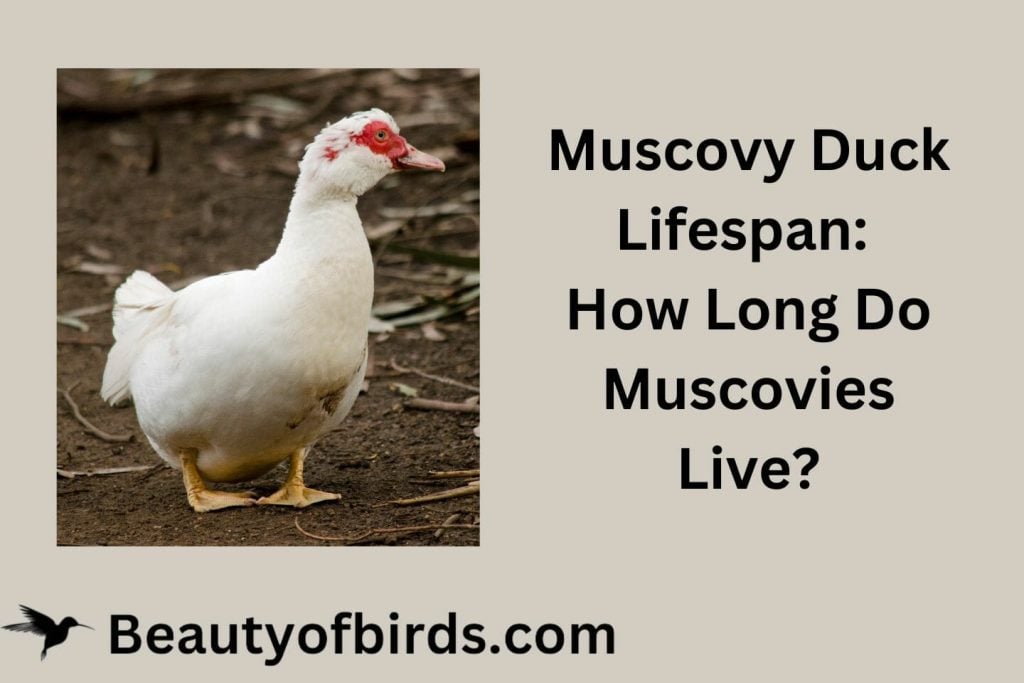
Their longevity is one of the very reasons for their domestication. They are one of the longest-lived duck species.
Muscovy ducks can live up to 20 years of age in captivity.
Read on to discover more about the lifespan of the Muscovy duck.
How Long Do Muscovy Ducks Live in the Wild?
Muscovy ducks are a species of tropical bird that can be found in marshy forests and dense vegetation of Central and South America.
They are most commonly found perching on tree branches close to a water source. Because of this, they are often referred to as wood ducks.
But there is a very logical explanation as to why these wild ducks roost high in the canopy: to avoid predation.
Being a rather large waterfowl species, Muscovies have a lot of predators.
These range from aquatic species, such as caimans, snakes, and herons, to terrestrial species, such as cats, foxes, and opossums.
They also have arboreal predators, such as owls and hawks.
Due to this, the lifespan of a wild Muscovy duck is drastically lower than that of a pet. A typical life expectancy for a wild Muscovy duck is just 6 – 8 years of age.
Despite their reduced lifespan, it is speculated that wild Muscovies do not breed until about 1 – 2 years of age. Scientists are unsure as to why this may be.
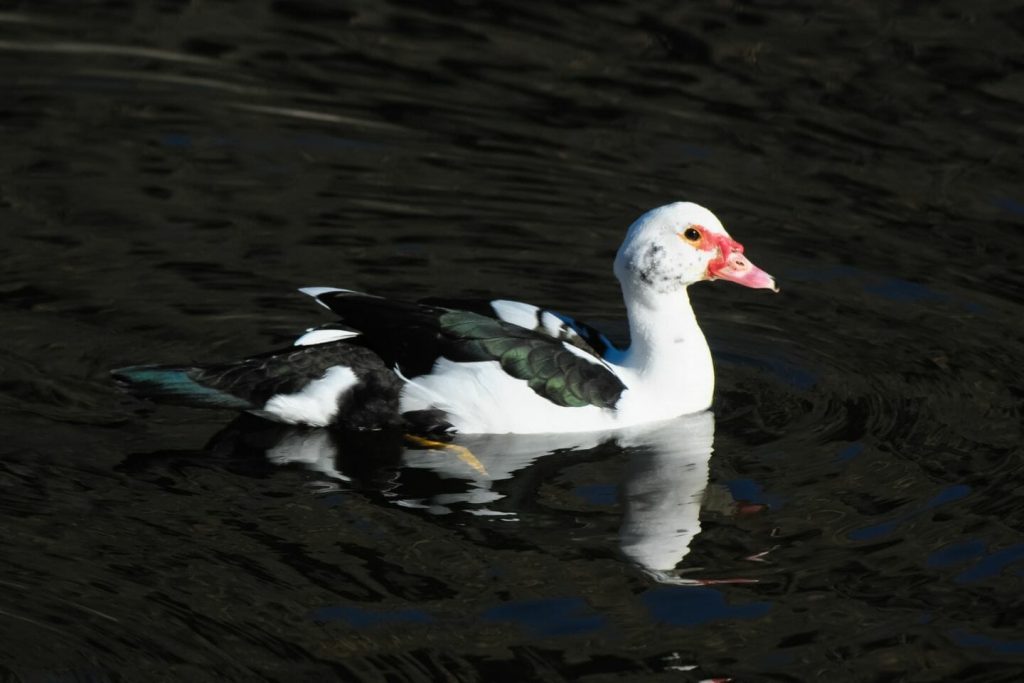
How Long Do Muscovy Ducks Live in Captivity?
Typically, captive Muscovy ducks live between 8 – 12 years of age.
Across the globe, Muscovy ducks have been an important part of human economic evolution.
Before Columbus “discovered” the New World, indigenous communities had been domesticating variations of the wild Muscovy duck for meat and egg production.
Now, Muscovies are one of the most common domesticated varieties of ducks worldwide. They can be found in North America, Asia, Europe, and Africa.
Domestication of Muscovy ducks led to the establishment of feral populations, which, in turn, caused significant environmental problems.
Such issues include the spread of infectious diseases and competition with native waterfowl species.
However, with the right care and regulations, it is possible to maintain your own populations of Muscovy ducks.
Under the right conditions, Muscovies on a homestead or farm can reach up to 20 years of age.
However, the typical life expectancy is around ten years of age. This makes Muscovy ducks one of the longest-lived species of duck.
In captivity, these domestic ducks reach sexual maturity at around 27 – 30 weeks.
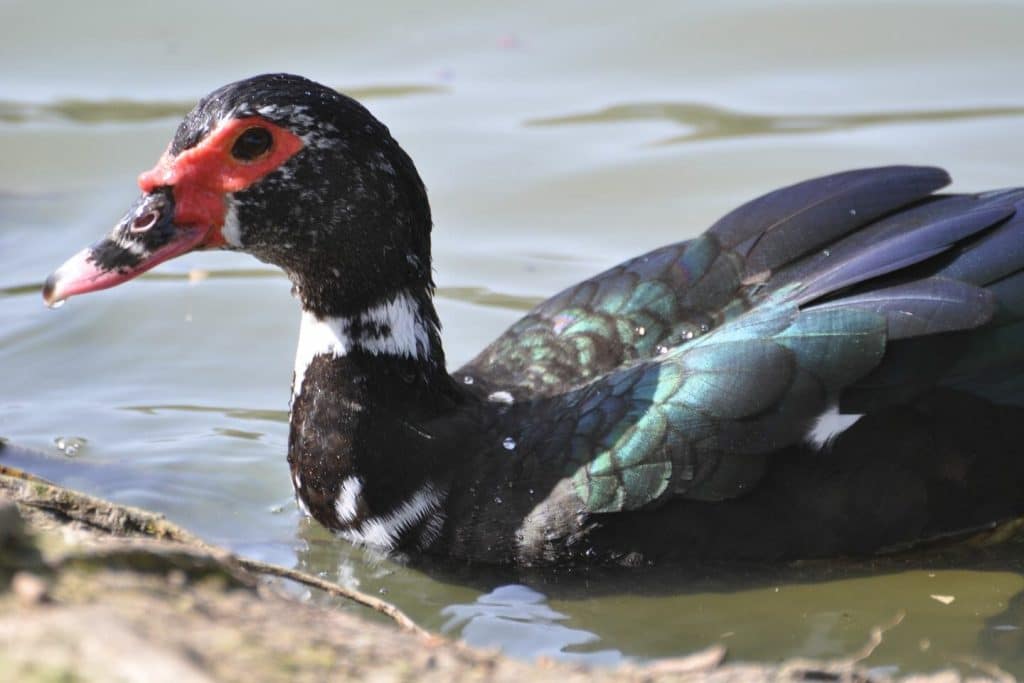
How To Increase Longevity in Your Muscovy Ducks?
We’ve established that Muscovy ducks have the potential to reach the grand age of 20 years.
But how can you increase the likelihood of making your Muscovies reach this age? Let’s explore some factors below.
Diet
Diet is incredibly important when it comes to the health of your Muscovy ducks.
In the wild, Muscovies are versatile and opportunistic feeders, preying on a range of different species.
Such prey species include crustaceans, insects, and small vertebrates.
They also eat a wide range of aquatic vegetation, seeds, nuts, and fruits.
Domesticated varieties are no different when it comes to foraging behavior.
Much of the diet of a domesticated Muscovy duck comprises proteins. This is normally derived from insects, such as mosquito larvae and other aquatic species.
This is why it is important to include a water source near them, even if it is just shallow water.
In the winter, when the insect population is greatly reduced, consider adding a nutrient-rich feed to your Muscovies diet.
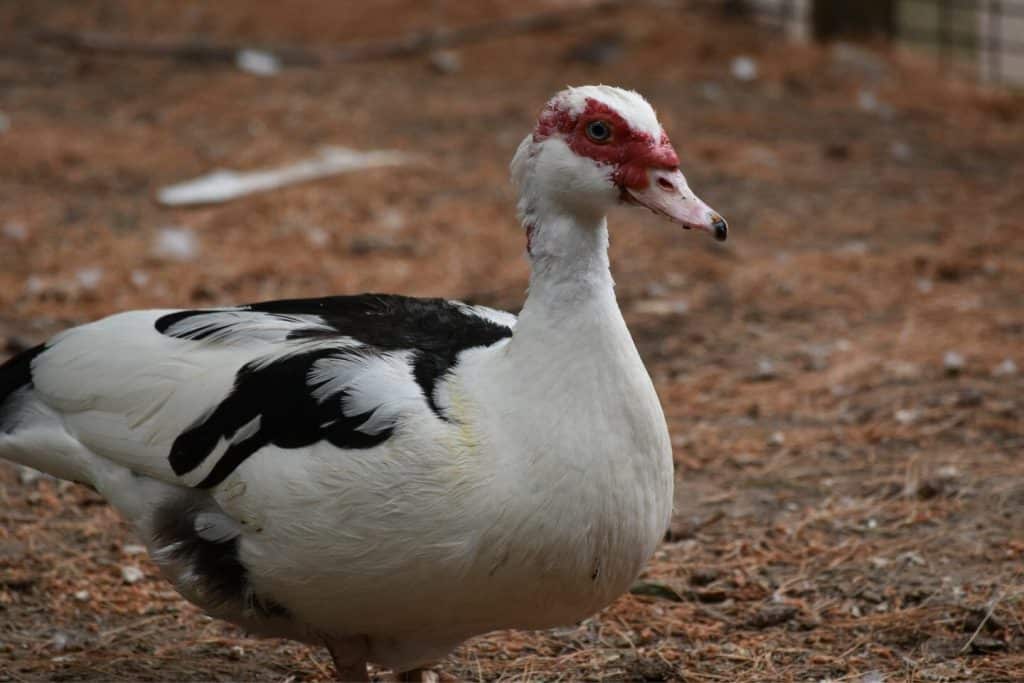
You can also include seeds and grains – something wild Muscovies actively forage for. Seeds and grains are high in good fats and essential amino acids needed for everyday life.
Common seeds to feed Muscovy ducks are sesame, chia, flax, pumpkin, and sunflower.
These seeds promote healthy digestion and egg production and can be picked up from most major supermarkets and pet stores.
Water
We’ve just discussed that water is an incredibly important part of a Muscovies foraging lifestyle.
However, water plays many more important roles in the health of Muscovy ducks.
First and foremost, it is incredibly important to change the water source (if you do not have a natural pond) daily.
Sometimes, it is necessary to change the water twice in one day if your Muscovy duck has pooped excessively – which definitely does happen.
Dirty water can lead to a wide range of health problems, such as avian cholera and aspergillosis, and will reduce the lifespan of your Muscovy duck.
Water also serves important behaviors in Muscovy ducks, such as head dipping and preening.
These behavioral characteristics are vital for the overall health of your Muscovy duck.
Predation
Unfortunately, most duck species rank relatively low on the food chain.
Across the globe, many predators prey on captive duck species.
Some of the most common Muscovy predators, depending on the geographical location, include opossums, foxes, skunks, badgers, and raptors.
To offset the dangers of predation, ensure there is safe and secure housing for your Muscovies, especially at night.
You may find it hard to coerce your Muscovies in at night. They are a very hardy species and are able to withstand frigid temperatures as low as 10°F.
However, with time, your Muscovies can be conditioned to sleep in a secure house. Patience is required.

What Is the Lifecycle of a Muscovy Duck?
Captive Muscovies can start laying eggs after they’ve hit sexual maturity. This differs between sexes but is typically around 6 – 7 months of age.
Female ducks, or hens, do not need a male duck or drake to start laying eggs. However, a drake is needed to fertilize eggs and produce ducklings.
Males are promiscuous and will mate with different females over their lifespans.
However, a male will guard one female ferociously during the breeding season, which normally occurs in the spring.
Due to the male’s dedication and instinct to guard, they often have a lower survival rate, as they are more susceptible to predation.
Female Muscovy ducks can lay a clutch of eggs anywhere between 12 – 19 eggs.
If fertilized by a drake, eggs will take approximately 35 days to hatch into Muscovy ducklings. Interestingly, this is slightly longer than other domestic duck species.
Ducklings will stay close to their mother for the first couple of months as she teaches them to forage and avoid predation.
How Can You Tell How Old a Muscovy Duck Is?
Age determination in Muscovy ducks can be relatively hard, especially in ducklings. However, there are some signs you can look out for to gauge the age of your Muscovies.
Feathers are one of the easiest ways to tell the age of Muscovy ducks.
Until about four weeks of age, Muscovy ducklings are covered in a fuzz of downy, yellowy feathers.
At around four weeks old, Muscovy ducks will start to develop feathers around the tips of their wings and tail.
If you have a flock of ducklings that have developed feathers faster than the others, they are probably females.
Males take around 5 – 6 weeks to start developing adult feathers.

Another rule of thumb is to look at the brightness of the feathers – a tip easier said than done.
Typically, older Muscovies have duller feathers compared to their younger counterparts, whose feathers look considerably more vibrant.
With age, wild Muscovy ducks develop glossy black feathers. Domesticated Muscovies can be a range of different colors, from all white to pied (black and white).
Frequently Asked Questions
What is the life expectancy of a Muscovy Duck?
Wild Muscovy ducks rarely exceed eight years of age. This is due to the higher risk of predation and diseases in their natural habitat.
At what age do Muscovies lay?
Are Muscovy ducks intelligent?
Muscovy ducks are a curious species of duck. To increase welfare, they incorporate enrichment into their enclosures and plenty of branches.
What kills Muscovy ducks?
If captive Muscovies are not cared for properly, they can also succumb to a variety of diseases. Most are related to poor hygiene and unchanged water.
Wrap Up
Although Muscovy ducks can live as long as 20 years in captivity, the average lifespan is around ten years old.
This age can be increased if you follow simple welfare and hygiene standards.
Wild Muscovy ducks rarely exceed eight years of age due to natural predators.
Thank you for reading, and I hope you have learned more about the lifespan of Muscovy ducks.

